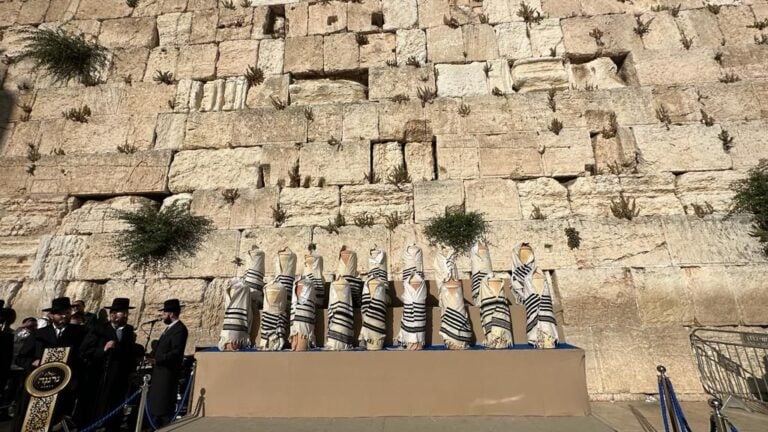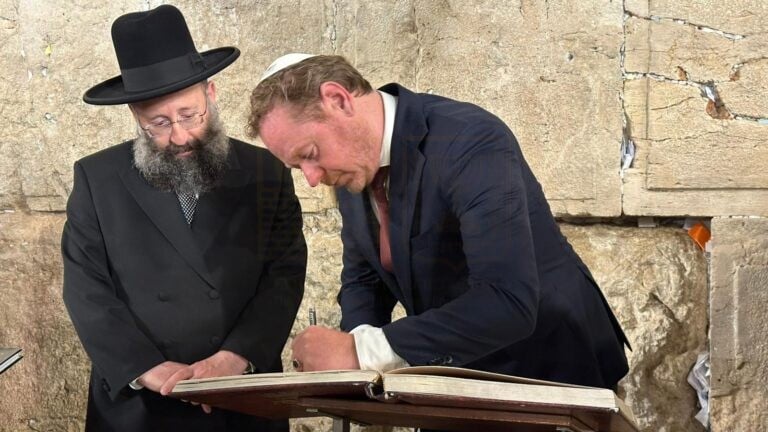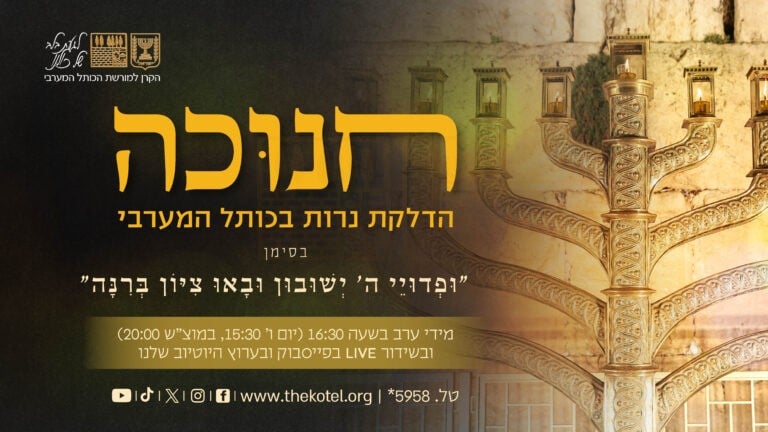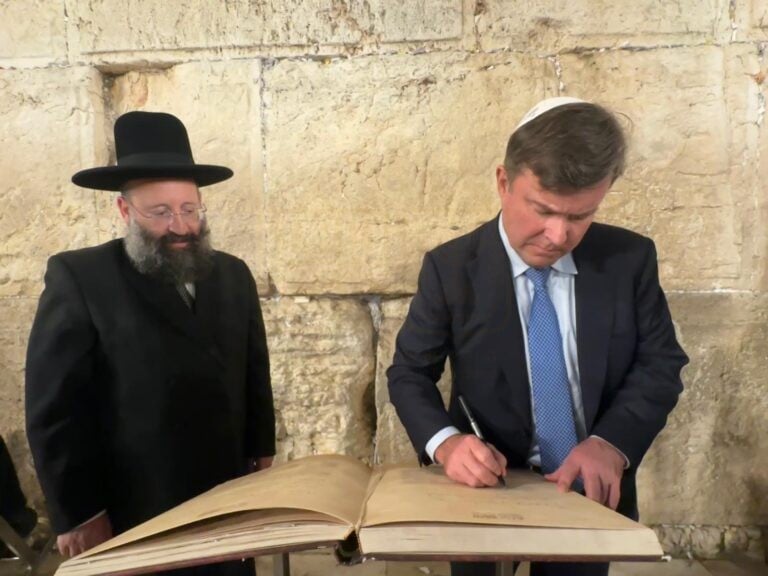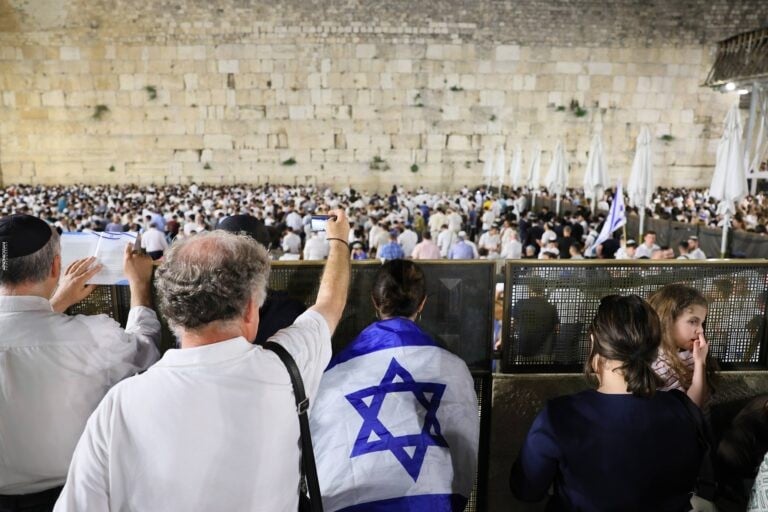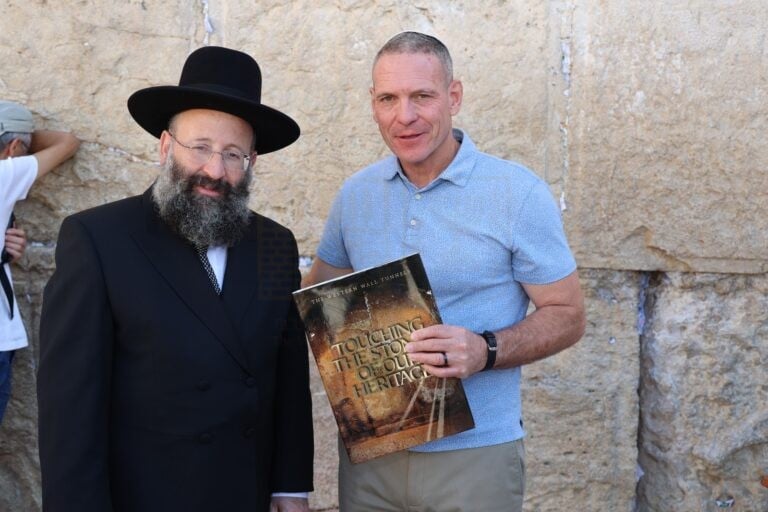Parashat Re’eh – 5785
Rabbi Shmuel Rabinowitz, Rabbi of the Western Wall and Holy Sites
Among the many mitzvot and laws mentioned in our parasha is the section of the Ir Hanidachat (the condemned city). This is a city in which most of its inhabitants practiced idolatry. At the conclusion of this section, the Torah states:
“And [the Lord] will give you mercy, and have compassion upon you, and multiply you, as He swore to your fathers.”
(Deuteronomy 13:18)
What is contained in this promise?
Let us reflect upon the teaching of the holy Or HaChaim (Rabbi Chaim ben Attar, one of the great commentators of the Torah), and take from it a lesson for life:
“Since the Torah commanded concerning the condemned city that all its inhabitants be killed by the sword, such an act would implant a nature of cruelty in the heart of man. As we have heard of the Ishmaelites—the sect of murderers who, at the king’s command, feel a great desire when killing a person—compassion is cut off from them, and they become cruel. This same tendency would take root in those who killed the inhabitants of the condemned city. Therefore, God gave them a promise that He would grant them mercy. Even though by nature cruelty might develop within them, the source of mercy would bestow upon them anew the power of compassion, canceling out the cruelty that might have arisen from that act.”
The Jewish people are described as “merciful ones, children of merciful ones.” This is our ancestral heritage, passed down through the generations, and rooted so deeply that it is part of our very nature. As the Talmud states:
“Rav said: Anyone who shows mercy to people is certainly of the seed of Abraham our father; and anyone who does not show mercy to people is certainly not of the seed of Abraham our father.”
(Beitzah 32b)
When God promises us that He will give us mercy “as He swore to our fathers,” the meaning is that this quality is our eternal gift—we cannot be separated from it.
If we are Jews, then we are merciful. And when the Torah commanded us to destroy nations or places from which evil itself stemmed, it hastened to assure us: do not fear that such acts of destruction will turn you into cruel or immoral people—heaven forbid.
This stands in contrast to religions and groups that proudly proclaimed themselves “religions of mercy” and the like, while in practice being far from it. We, the Jewish people—the persecuted and tormented ones who constantly tasted the cruelty of the bloodthirsty sword—have never, heaven forbid, absorbed that trait, nor have we ever been capable of cruelty, even toward the cruelest of enemies.
Countless testimonies preserved in the archives of Holocaust memorial institutions speak of the gentleness of the survivors, who—despite the burning call for revenge within them—never dared, nor even entertained the thought, of behaving as their beastly murderers had done.
This is the greatness and valor of the soldiers of Israel throughout history: when they were forced to defend themselves, protect their homes, and fight with supreme courage against a wicked and cruel foe. Like lions they fought for their homes, knowing neither fear nor weakness—yet they remained as distant from cruelty as east is from west.
Today, when our soldiers fight with strength drawn from the eternal spirit of Israel, the world knows deep inside the measure of their compassion and mercy. May God protect the soldiers of Israel and place wise counsel in the hearts of their commanders. May peace dwell in the land—Amen.
